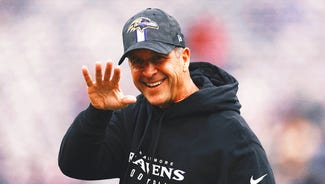
WADA: NFLPA stance on HGH test 'not about science'
Criticizing the NFL Players Association for blocking tests for human growth hormone, the head of the World Anti-Doping Agency said Thursday the union's objections are ''not about science'' and have ''no substance.''
Speaking to reporters at an anti-doping conference hosted at NFL headquarters, WADA director general David Howman added that the NFLPA's stance could lead one to believe that HGH use is a problem in pro football.
''The players are making a very good go of trying to say it is a problem by not agreeing to be tested. I would have thought if there wasn't a problem, they would say, `Hey, test us,''' Howman said. ''If you've got nothing to hide, open up.''
The new labor contract that ended the NFL lockout in August included a provision for HGH testing as soon as this season - but only once the NFLPA approved the process. That hasn't happened, in part because the NFLPA says it needs more information about the test itself.
''The NFL itself are approaching this in a pretty responsible fashion, and it's a bit disappointing when you are doing things to support the clean player that the players themselves are not in the same sort of mood,'' Howman said.
Earlier, during his keynote speech at ''The Doping Decision: Deterring Doping in Sport,'' a conference organized by the Partnership for Clean Competition, Howman gave kudos to Major League Baseball and its players for recently agreeing to start HGH testing in spring training - and took a jab at the NFLPA, saying of that union's hesitancy on the issue: ''It's not about science; it's about something else, and that is frustrating.''
Howman gave baseball a pass for not yet adding HGH to its list of substances being checked in the regular season.
''They're doing a step which is pretty significant. ... So I don't have a problem with them doing it a step at a time,'' Howman said. ''Let's wait for the second step.''
Told of Howman's comments about football, NFLPA spokesman George Atallah said in a telephone interview: ''The only institution that's lacking transparency in this situation is WADA. The test is not peer-reviewed by scientists other than WADA scientists. They don't reveal information about the population studies which is the foundation for their test, and they refuse to allow a fair appeals process as part of their program.''
Anti-doping experts have said further population studies aren't needed because those used to validate the test included dozens of athletes who have a football player's body type, including players in Canada. Many of those same experts have, however, always said that an independent appeals process is critical to running a fair doping program. The NFL has final say on suspensions resulting from its testing programs.
''Our ability to begin HGH testing is not going to be determined by any artificial deadline. It's going to be determined by the validity and fairness and reliability of the test and the testing protocol,'' Atallah said.
Northwestern University's Gerhard Baumann, a longtime HGH expert who spoke at Thursday's conference, called the NFLPA's argument ''spurious,'' saying there's no evidence WADA's test for that substance is unreliable.
''This has been studied for decades. These arguments are not scientifically valid,'' Baumann said.
WADA's Howman wasn't exactly on neutral ground Thursday: The NFL and MLB give money to the Partnership for Clean Competition, which funds grants for research to combat performance-enhancing drugs in sports; the conference was proudly touted on a video screen in the lobby at NFL headquarters; Howman was introduced to the audience by Adolpho Birch, the NFL's senior vice president of law and labor policy.
''We have attempted from August forward to address every concern that (the NFLPA) raised through the use of experts, through scientific literature, through meetings, through discussions, through offering up whatever avenues and means we had available to have those considered,'' Birch said after the conference ended. ''We believe that we've done that. If those concerns remain, it is beyond our capacity to be able to address them further.''
Among the other speakers Thursday was Jeff Novitzky, a Food and Drug Administration special agent who has been involved in federal investigations into seven-time Tour de France winner Lance Armstrong and, in his prior job as an IRS special agent, into the Bay Area Laboratory Co-Operative (BALCO).
He advocated cooperation between federal investigators and various sports to track down performance-enhancing drugs.
''It's important for us in government law enforcement to work with anti-doping (agencies), to work with the leagues, to determine what are the next (substances) out there,'' Novitzky said. ''When you find that is going on in the league, five years later it's going to filter down ... to society.''










